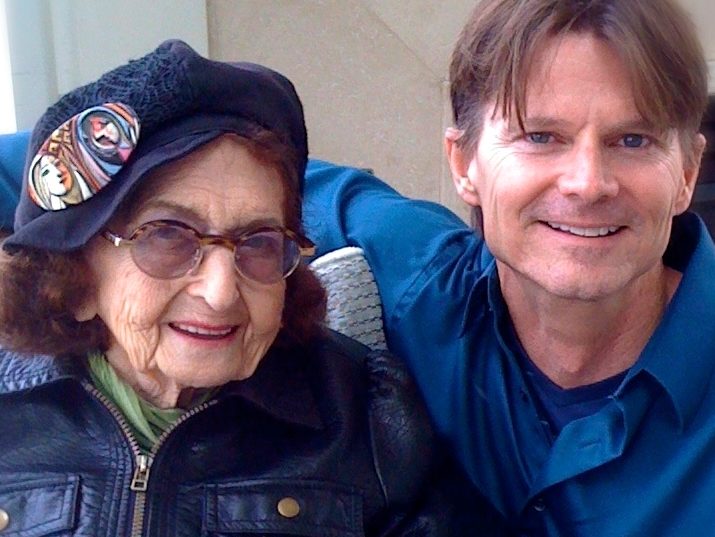How to Live a Purposeful Life
By Bill Benson · April 30, 2021

Earlier today, I opened a book that was gifted to me by my dear friend Sophie Butler.
Where Will You Be Five Years from Today? is an interactive guide for readers looking to define and pursue inner-purpose. The book’s theme of giving oneself permission to create tangible goals that spark realities is a valuable perspective. In fact, leafing through its pages inspired me to write this very article.
Purposefulness is vital to well-being. It also provides pivotal protection against disillusionment, apathy, and depression. Approaching our days with curiosity creates countless opportunities for personal growth and self-esteem.
In today’s society, exploring purpose can be challenging. It’s so easy to fall into distractions of consumption, not contribution: Movies and dinners out, while pleasant, are examples of diversionary, not purpose-defining activities.
Most do not recognize interactions as opportunities for collecting data and clarifying happiness.
Purposeful living involves endeavoring in psychologically meaningful ways. This is a process: Deriving meaning from life requires an ongoing expansion that isn’t complete until we draw our last breathes.
Collective Happiness
Surveys show that happiness is measurable through contribution, not consumption. Accomplishment is a byproduct, not a pursuit in this journey. For example, the Cattle-herding Masai tribe of Kenya collectively ranked the same on a life-satisfaction scale as those making the Forbes List of 400 Wealthiest Americans.
Whereas intention may be at the tribal level for Kenyan ranchers while global in nature for corporate leaders, the generated sense of wellbeing becomes the same. In both circumstances, there’s an implication that involvement and intention – not necessarily the attainment of a specific result – create life satisfaction.
So How Do We Personally Clarify Purpose?
Since evolving at this level may involve a lifetime of journeying, it’s wise to find what emotionally propels us forward despite the situational challenges that are bound to pop up along the way.
Art Markman, the author of Smart Change, suggests envisioning the end of our lives, noting any regrets, then addressing these shortcomings as a method for pointing us in more meaningful directions. Psychology Today recommends envisioning our upgraded selves not as future strangers but as people we already are – just in different circumstances – as a way to realize our potentials.
“I am a worthy human being.”
-Stuart Smalley
Despite the humorous implications, Affirmations work. For example, The Mental Gym’s two-decade success within a very competitive marketplace pivots on my long-ago decision to repurpose Nike’s “Just Do It” into a personal mantra. This slogan has value because it leaves little room for any negative self-talk or procrastination that would set me back from my pursuit of helping others get emotionally fit (my larger purpose).
A Meaningful Ending
Above, I failed to mention a couple of additional facts about my friend Sophie:
- Sophie bought herself a copy of Where Will You Be Five Years from Today? so that we could look to the future together.
- Sophie was 91-years-old when we set out on our 5-year journey.
Unfortunately, we never got a chance to fill these pages: Sophie died a short time after presenting me with this endeavor.
In retrospect, Sophie didn’t need to complete a workbook: she had spent a lifetime already questing in healthy ways. She stayed curious until her last days, enjoying T’ai Chi classes and exploring the Internet.
Five years equals 260 weeks or 825 days or 2,333,000 minutes.
What will you do with the next five years?
Sophie gifted me with more than a workbook. Through her lifelong desire to explore and expand, she became a glowing illustration of a life well-lived.
“Don’t say you don’t have enough time. You have precisely the same number of hours per day given to Helen Keller, Louis Pasteur, Michelangelo, Mother Teresa, Leonardo da Vinci, Thomas Jefferson, and Albert Einstein.”
– Jackson Brown
Is the Role You’re Playing an Accurate Depiction of Who You Really Are?
One of my favorite interventions demonstrates a common theme within many religions, spiritual practices, and metaphysics:
Scan your body with curiosity to realize what you’re not:
- You’re not your clothes – outfits are pulled on and taken off without your identity changing.
- You’re not your career – even if you identify with your occupation, you exist separately from what you do.
- You’re not your hair – hair can be cut, colored – or even fall out, and you’re still you.
- You’re not your skin – skin cells are shed continuously, yet you’re still identifiable.
- You’re not your organs – the building blocks within your body regenerate, yet they maintain stable functioning.
- You’re not your thoughts or moods – these change at will, yet you keep a consistent identity.
- So, the question becomes – What makes you, you?
An Illuminating Illustration
I often use lightbulbs as analogies to help clients answer this question because these devices demonstrate how source energy uses a physical system to convert electricity into light: As you align with your true essence, you also illuminate your physical body’s journey.
Enlightenment is an internal process of recognizing, developing, and expressing what authentically already lives within you.
So, the next time you dress to impress or become nervous about proving yourself during a business meeting, realize you can function from a more accurate, reliable, and compelling perspective. Turn your attention away from approval-seeking and your need to control life’s externals. Instead, interact using the internal completeness within you.
Just as darkness evaporates the moment we turn on a light switch, we can resolve any emotional insecurity with inner illumination. You are not what you do – what you do is a function of you…
